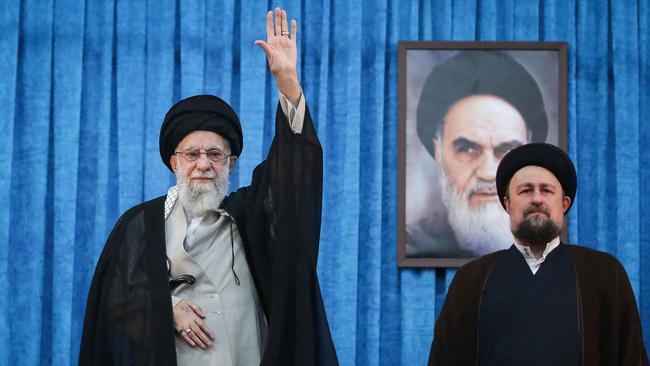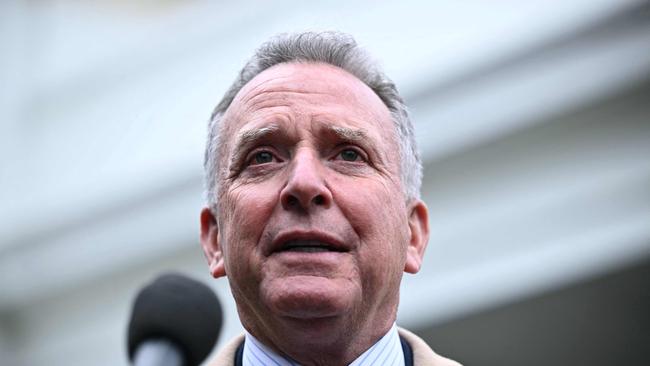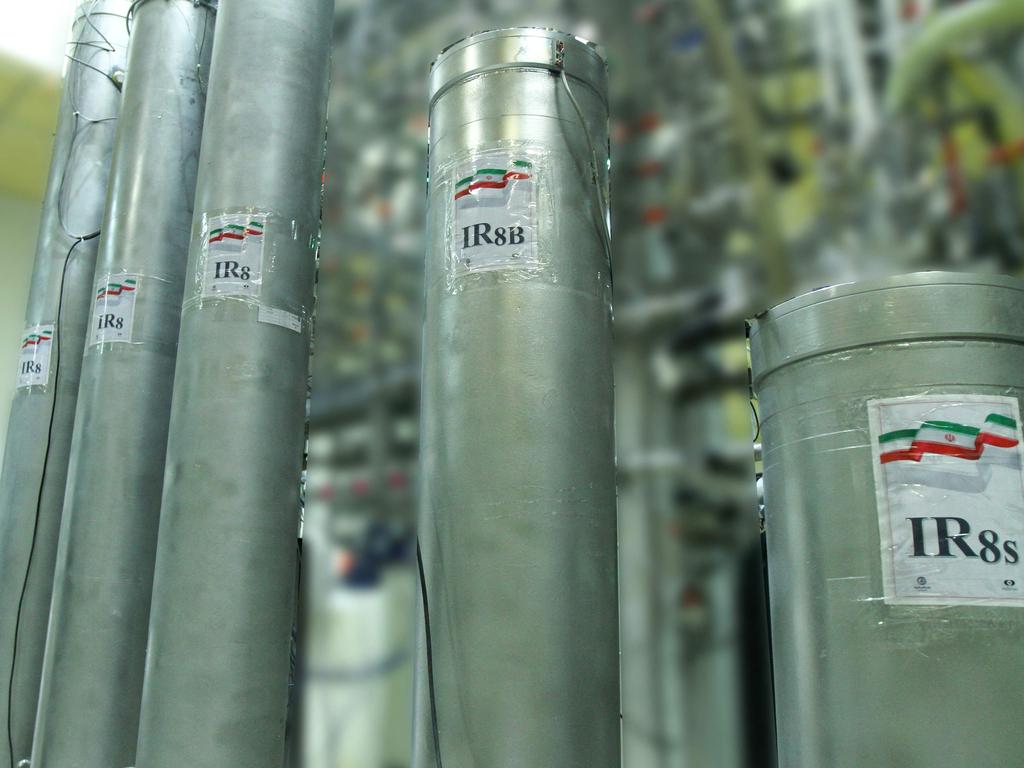Iran’s supreme leader rejects US nuclear deal offer
Trump says Putin has offered to join talks the White House reconsiders its approach to Tehran.

Iran’s supreme leader effectively rejected a US proposal that allows temporary uranium enrichment in the country before ending it completely, forcing the White House to reconsider its approach as tensions mount over Iran’s nuclear program.
Ayatollah Ali Khamenei, speaking Wednesday on the anniversary of the death of his predecessor, said the recent US offer to Iran to resolve the standoff over Tehran’s nuclear program breached Tehran’s principles of independence.
“To the American side and others we say: Why are you interfering and trying to say whether Iran should have uranium enrichment or not? That’s none of your business,” Khamenei said on X.
Donald Trump said that he had spoken about Iran in a phone conversation with Vladimir Putin and the Russian President had offered to join the talks.
In a now deleted post on his Truth Social platform, the US President said he and Putin had agreed Tehran ‘cannot have a nuclear weapon’. He said part of their call was focused on Iran and “the fact that time is running out on Iran’s decision pertaining to nuclear weapons, which must be made quickly!” He said he told Putin “that Iran cannot have a nuclear weapon and, on this, I believe that we were in agreement.” He said Putin suggested “that he will participate in the discussions with Iran” and could perhaps “be helpful in getting this brought to a rapid conclusion.” He suggested that Iran has been slow-walking their decision “and we will need a definitive answer in a very short period of time!”
Iran and the US have held five rounds of nuclear talks so far, but the two sides have clashed over Washington’s insistence that Tehran give up enrichment. Western officials believe Iran wants to enrich to retain the option of producing a nuclear weapon. Iran says its nuclear work is peaceful.
Last week, President Trump’s special envoy Steve Witkoff submitted what US officials called a term sheet to Tehran, which one US official said allows Iran to enrich a limited amount of uranium for a period of time before phasing it out.
Iran is in the process of responding formally to the US offer, Foreign Minister Abbas Araghchi said Tuesday. Khamenei is the country’s decision maker on security matters and his comments on Wednesday are the clearest indication of Iran’s likely formal response.
The US official said this week Washington expected Tehran to reject the initial US offer and the US will have to consider its next steps. Negotiations could continue this weekend, officials say.

Under the proposal, the US would help foster the creation of enrichment facilities managed by a consortium of regional countries, according to the US official and a person briefed by Iran’s negotiating team.
Meanwhile, Iran would be able to enrich small amounts of uranium at an overground site. But Iran would have to stop all enrichment in the country once the consortium is up and running.
Iran would have to render its current underground enrichment facilities at Natanz and Fordow inoperable upfront under the proposal, the US official said. That would shutter the vast bulk of Iran’s centrifuges, which are used to enrich uranium.
Some Iranian officials have expressed openness to a consortium but have said any enrichment must continue in Iran and under its control. Iranian officials have long insisted Tehran’s enrichment program isn’t up for negotiations.
Trump said this week a new nuclear deal would preclude an enrichment program. That may not rule out an interim arrangement allowing some domestic enrichment by Iran.
Iranian officials have complained that Witkoff has refused to commit to specific sanctions relief, say Arab and Iranian officials.
Oman, which is mediating between Iran and the US, has also suggested Iran halt some enrichment on a temporary basis in exchange for sanctions relief.
Trump has said he prefers to see a nuclear deal with Iran but warned he could take military action if there is no deal. Israel has also threatened action against Iran’s nuclear program if Tehran moves toward building a nuclear weapon.
Iran has amassed a highly enriched uranium stockpile, according to the United Nations atomic agency in Vienna. It is producing roughly one bomb’s worth of highly enriched uranium monthly, based on the UN’s most recent assessment.
While the talks continue, Western powers are on a collision course with Tehran at the UN atomic agency, which could put further pressure on the negotiations.
Last weekend, the International Atomic Energy Agency circulated a long-awaited report on Iran’s stalling over a six-year-old probe into undeclared nuclear material found in Iran.
European diplomats in Vienna say they plan to push ahead with a resolution at the IAEA board of governors meeting next week declaring Iran in noncompliance with its basic nuclear safeguards obligations, a step that could push the issue to the attention of the UN Security Council for a response. The US is expected to back the move, a senior diplomat said Wednesday.
Britain, France and Germany have said this could be the next step in their threat to reimpose all the international sanctions lifted on Iran under the 2015 nuclear deal.
Iran has warned that if snapback proceeds, it would withdraw from the international treaty banning the spread of nuclear weapons and kick out international inspectors.
Over the past four years, Iran has faced a series of rebukes at the Vienna agency over its lack of co-operation with the IAEA. Each time, it has reacted by gearing up its nuclear program or further downgrading oversight of its work.
Wall Street Journal






To join the conversation, please log in. Don't have an account? Register
Join the conversation, you are commenting as Logout